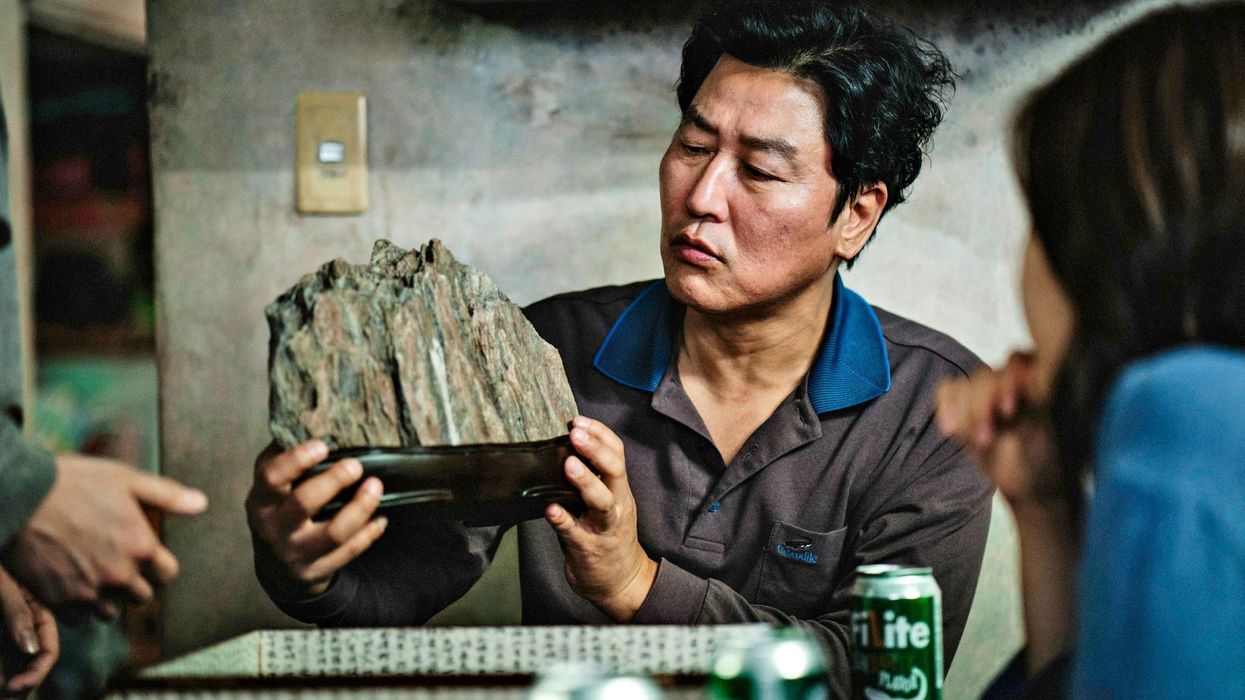What Movies Should a First Time Director Study?
If you're getting in the director's chair for the first time, here are some films you should check out.

I got an email a few weeks ago from someone who was prepping to direct their first movie. They wanted a list of movies they should watch to inspire them.
This was a tall task. I was thinking about fitting into genres and then tailoring the list to movies that were the director's first movie, I went a little nuts.
So, instead, I just emailed some friends and farmed out the job. I asked them to pick a movie a first-time director should definitely have seen. In this article, we'll explore a curated list of movies that every first-time director should study.
These films, spanning various genres and decades, are not just entertainment; they are textbooks in motion. From classic masterpieces to modern marvels, each film offers unique lessons in storytelling, cinematography, character development, and more.
Let's dive in.
First Films of Famous Filmmakerswww.youtube.com
What Movies Should a First Time Director Study?

Kevin Smith and Jason Mewes in 'Clerks'
Credit: Miramax FIlms
For a first-time director, studying a diverse range of films is crucial for understanding different styles, storytelling techniques, and genre conventions.
Here are some movies across various genres and styles that were often recommended:
Classics and Influential Works:
- Citizen Kane (1941) by Orson Welles: Known for its innovative storytelling and cinematography.
- 8½ (1963) by Federico Fellini: A masterpiece in surreal filmmaking.
- The Godfather (1972) by Francis Ford Coppola: A lesson in character development and pacing.
- Battleship Potemkin (1925) by Sergei Eisenstein: A revolutionary film in editing and montage techniques.
- Bicycle Thieves (1948) by Vittorio De Sica: A landmark in Italian neorealism.
- Seven Samurai (1954) by Akira Kurosawa: Influential in editing and storytelling.
- Amélie (2001) by Jean-Pierre Jeunet: Known for its whimsical style and visual storytelling.
- City of God (2002) by Fernando Meirelles and Kátia Lund: Offers a gritty, realistic portrayal of life in the favelas of Rio de Janeiro.
- Amores Perros (2000), by Alejandro González Iñárritu: A complex narrative exploring human lives in Mexico City.
Modern Cinema
- Pulp Fiction (1994) by Quentin Tarantino: Renowned for its non-linear narrative and dialogue.
- Inception (2010) by Christopher Nolan: Demonstrates complex narrative structures and visual effects.
- Parasite (2019) by Bong Joon-ho: A blend of genre and a study in building tension.
Genre-Specific Films
- Horror
- Psycho (1960) by Alfred Hitchcock: A classic in suspense and horror.
- Let the Right One In (2008) by Tomas Alfredson: A unique take on the vampire genre.
Comedy- Annie Hall (1977) by Woody Allen: Innovative in its humor and narrative style.
- The Intouchables (2011) by Olivier Nakache & Éric Toledano: A heartwarming story of friendship.
- Blade Runner (1982) by Ridley Scott: A study in visual style and thematic depth.
- District 9 (2009) by Neill Blomkamp: A fresh perspective on sci-fi and social issues.
- Indie and Low-Budget Films
- Clerks (1994) by Kevin Smith: A lesson in making the most of limited resources.
- Moonlight (2016) by Barry Jenkins: Demonstrates powerful storytelling with a modest budget.
- Documentaries
- The Act of Killing (2012) by Joshua Oppenheimer: Explores innovative ways to present real-life stories.
- 13th (2016) by Ava DuVernay: A blend of historical footage and interviews to convey a powerful message.
- Honeyland (2019) by Tamara Kotevska and Ljubomir Stefanov: A stunning portrayal of rural life and environmental themes.
- The Square (2013), by Jehane Noujaim: An intense look at the Egyptian Revolution.
- Visual and Artistic Films
- The Grand Budapest Hotel (2014) by Wes Anderson: Known for its unique visual style and symmetrical compositions.
- Hero (2002) by Zhang Yimou: A study in color theory and visual storytelling.
- In the Mood for Love (2000) by Wong Kar-wai: A masterclass in mood and cinematography.
- The Lunchbox (2013) by Ritesh Batra: A film notable for its narrative simplicity and emotional depth.
- Animated Films
- Spirited Away (2001) by Hayao Miyazaki: A lesson in creativity and animation as a storytelling medium.
- Toy Story (1995) by John Lasseter: Pioneering in computer animation and storytelling in animated features.
- Persepolis (2007), by Marjane Satrapi and Vincent Paronnaud: A powerful autobiographical animation.
- Waltz with Bashir (2008) by Ari Folman: An animated documentary exploring memory and trauma.
These films are more than just stories on a screen; they are masterclasses in the art of filmmaking. By studying these works, you can gain invaluable insights into different directing styles, narrative techniques, and visual storytelling.
However, remember that your unique voice as a director is equally important. Let these films inspire you, but also dare to explore and express your own creative vision.
Hopefully, this helps inspire you.
Let me know what movies we left out in the comments.
- What This First Time Director Thinks You Need To Know Before Making Your First Project ›
- This First-Time Writer/Director's Journey to Creating a Captivating Short Period Piece ›
- 4 Lessons on Being a First-Time Director from a First-Time Director ›
- Tim Burton Directing Lessons ›











